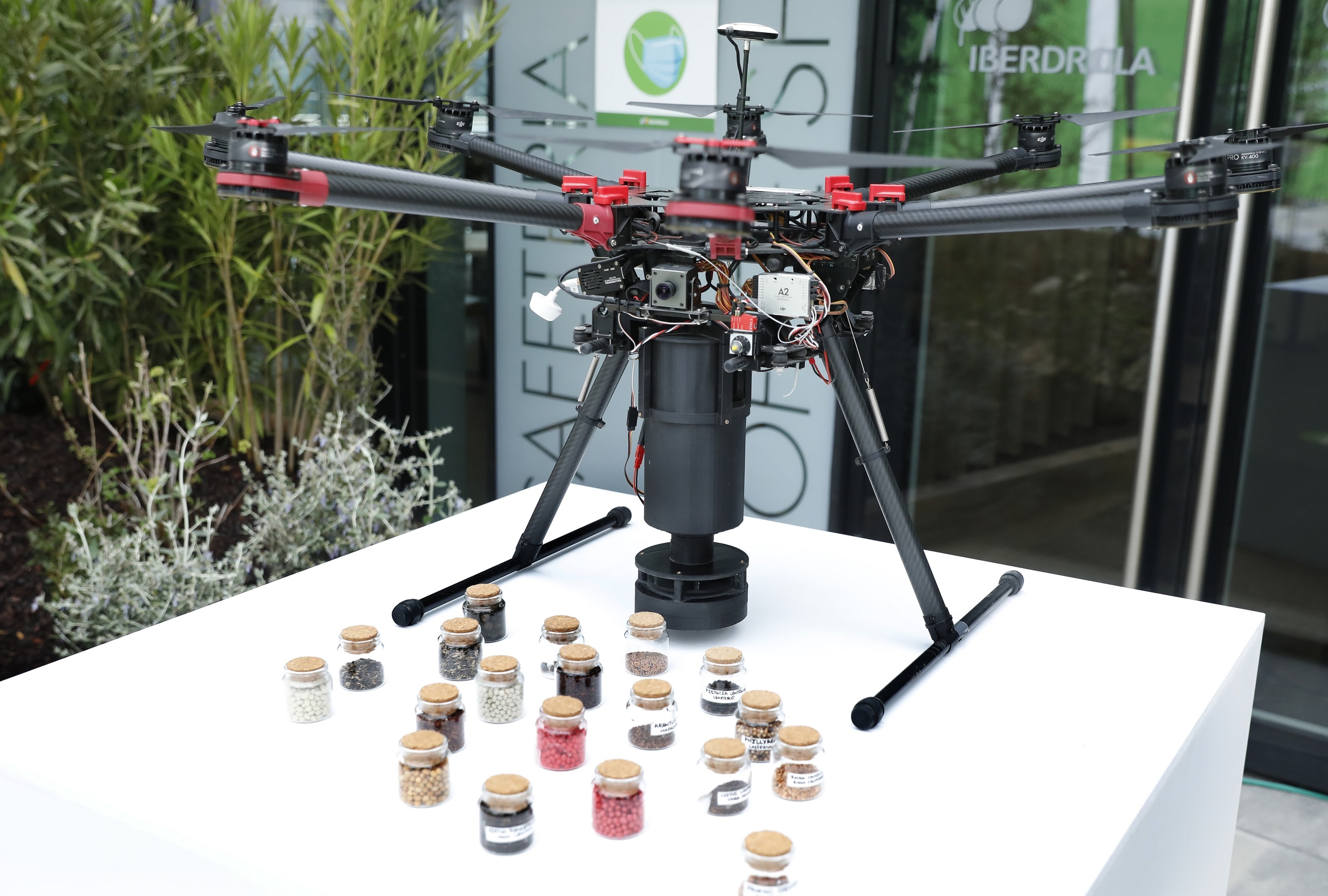BY UE STUDIO
Thursday, 3June2021-16: 21
Share on Facebook
Share on Twitter
Send by email
Renewable energies, structuring the territory and protection of biodiversity.
These are the
keys to the green economy
to combat not only climate change, but also to promote a more sustainable, competitive and resilient society.
Hence, Iberdrola has established them as its priorities within its ambitious investment plan for the coming years, supported by
environmental
, social and governance
criteria
.
Two decades ago, Iberdrola embarked on a sustainable growth strategy,
betting on renewable energy
. In this way, nature became its ally, providing resources such as wind, sun and water, which move wind turbines on land and in the sea, power photovoltaic projects and activate hydroelectric plants for the production of clean energy, free of emissions. A very important bet since, for example, the wind energy generated in our country in 2020 avoided expelling 29 million tons of C02 into the atmosphere, a figure much higher than that provided by the forest mass that the parks occupy with the capture of carbon .
Since 2001,
the company has invested 120,000 million euros in an energy revolution
that promotes the decarbonization of our economy, promotes the socioeconomic development of the communities where it operates and, in addition, coexists with natural ecosystems.
An investment effort that, in turn, will lead it to double its renewable capacity in the world in 2025 to 60,000 MW, reaching 100,000 MW by the end of the decade.
However, this strategy will also allow the company to continue reducing its carbon dioxide emissions, which are currently two-thirds lower than those of its competitors.
In 2030, the company will be carbon neutral in Europe and, in 2050, globally.
Sabina Albacete Wind Farm
All these objectives are integrated into its historic investment plan, which will reactivate
industry and employment
with 75,000 million euros until 2025 and 150,000 million euros until 2030. Almost all of this effort will be dedicated to the deployment of renewable projects and smart grids , key infrastructures to move towards a zero carbon economy.
Zero net loss of biodiversity
Stopping the loss of biodiversity is also key to combating climate change, which is why Iberdrola prioritizes the preservation of healthy ecosystems in its actions, carrying out more than 750 actions to protect biodiversity a year in the world, combining the installation of renewable projects with the conservation of the biological diversity of ecosystems and taking care of flora, fauna and natural heritage. His ambition in this area has led him to set a goal with which to accelerate this commitment and its actions: to achieve zero net loss of biodiversity by 2030.
One of the tools to achieve this goal is reforestation and, for this, the company has launched its
Trees Program
, which will lead it to plant 20 million trees by the end of the decade, with which it
will
be
able to capture approximately six million tons of CO2
.
Before, it will have planted 2.5 million until 2022 and 8 million trees before 2025.
Drone and smart seeds for reforestation
The initiative, which starts in the autonomous communities of Castilla y León, Valencia, Castilla La Mancha and Extremadura, has already started at Iberdrola's Innovation and Training Campus in San Agustín del Guadalix (Madrid), with the
reforestation of 3, 3 hectares
.
There 2,040 specimens of holm oak, juniper, stone pine, brake and rebollo, as well as 1,600 shrub plants, are already being planted thanks to the support of innovation and technology.
And the fact is that a good part of these new trees will be planted with pregerminated and intelligent seeds, launched by a drone -developed by the CO2 Revolution-, with the aim of reforesting large areas of land with native species in record time.
A constant commitment to the Amazon
Up to 20,000 hectares of Amazon rainforest have benefited from the actions for the protection and preservation of this ecosystem carried out by Neoenergia, Iberdrola's Brazilian subsidiary, through the Forest Recomposition Program and the implementation of the Permanent Protection Area of the hydroelectric plant from Teles Pires, located between the states of Mato Grosso and Pará.
Since its launch in 2015, the company has carried out initiatives to
conserve an area of tropical forest equivalent to 28,000 soccer fields
.
The actions benefit the entire local ecosystem, protecting springs and water sources, reducing soil erosion and siltation of rivers, providing shelter and food for animals.
Among the protected areas, 15,500 hectares of tropical forest are in
an advanced stage of preservation
, with a great diversity of species of fauna and flora. In the protection area of the Teles Pires reservoir, of 194 square kilometers, 955 degraded hectares have been reforested with native species, such as the Pink Cedar (Cedrela fissilis Vell.), The Yellow Ipê (Handroanthus serratifolius (Vahl) S. Grose) and Mahogany (Swietenia macrophylla King). Another 978 hectares have been excluded from human use, which will allow a natural regeneration, promoting regional biodiversity.
Between 2018 and 2020, more than 70,000 seedlings have been replanted to increase the genetic movement of native trees, helping to prevent the appearance of new species.
Until 2030, the reforestation of 2,000 more hectares with native plants is planned.
MADE BY UE STUDIO
This text has been developed by UE Studio creative firm of branded content and content marketing of Unidad Editorial, paraIBERDROLA.
According to the criteria of The Trust Project
Know more

